St Andrew's Day: When is it? Who was he? Why does Scotland celebrate him?
- Published
What is St Andrew's Day?
Every year on 30 November people in Scotland celebrate the country's patron saint - St Andrew.
The day is marked with a celebration of Scottish culture, traditional food and music.
Patron saints are chosen as special protectors or guardians over all areas of life.
St Andrew isn't just the patron saint for Scotland though - he also holds the position in several other countries too.
But who was St Andrew and why is he patron saint of Scotland? Keep reading to find out.
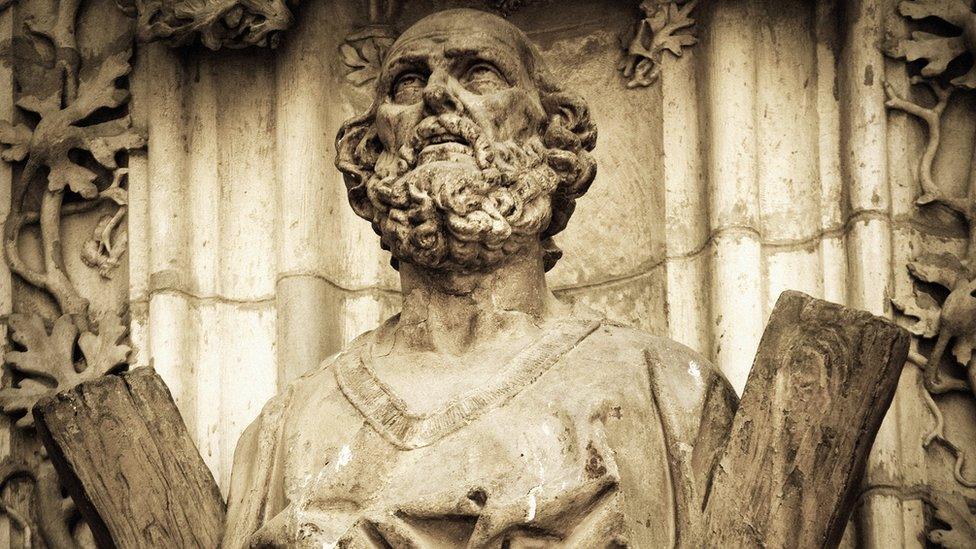
St Andrew was officially named the patron saint of Scotland in 1320
Who was Saint Andrew?
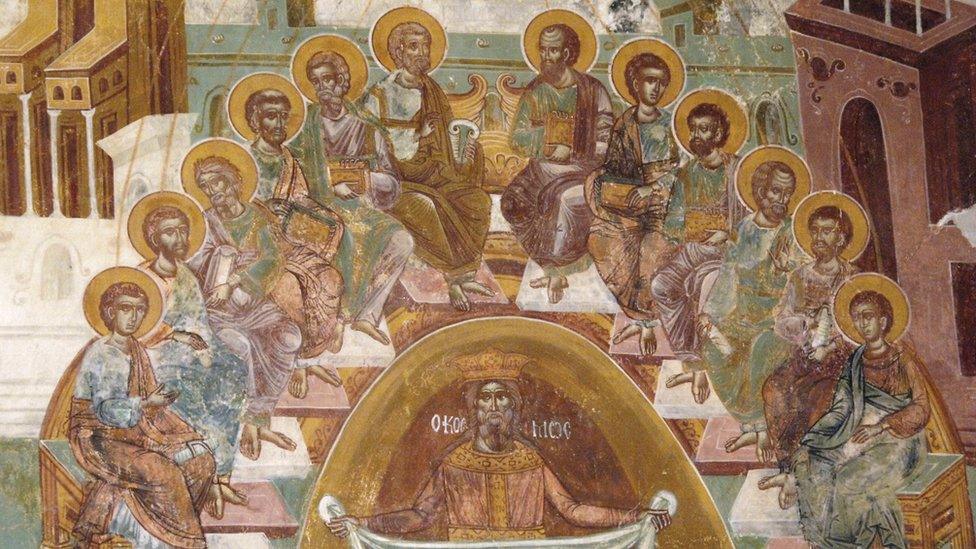
According to Christianity, St Andrew was one of Jesus's 12 followers, who were called disciples
We don't actually know a lot about St Andrew.
It is believed that he was born between the years 5 AD and 10 AD.
According to Christianity, he went on to become one of the 12 disciples of Jesus Christ. The disciples were 12 people chosen by Jesus to closely follow him.
Andrew's brother, Simon Peter, was also one of the disciples. They both lived in Galilee, where they were fishermen.
Funnily enough, St Andrew never actually stepped foot in Scotland his whole life!
Why is St Andrew the patron saint of Scotland?
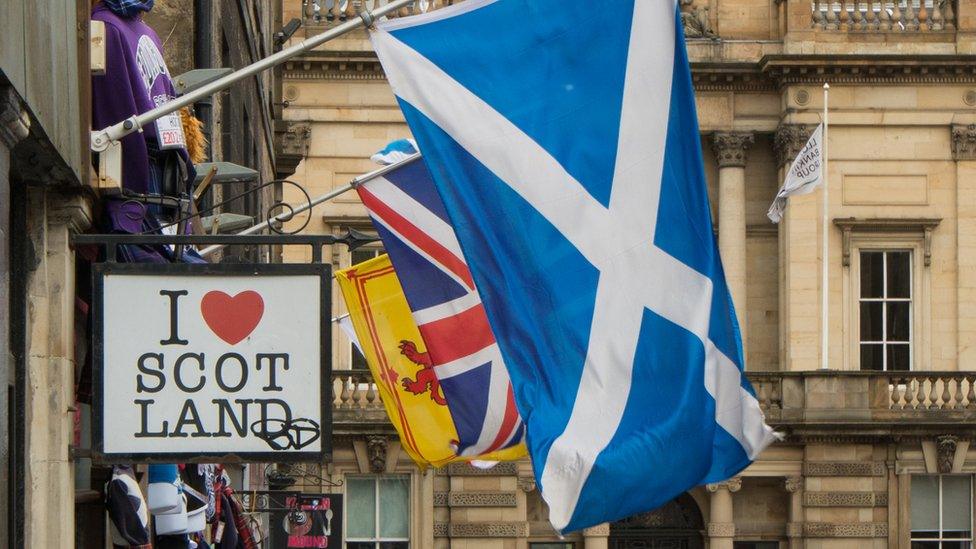
A Scottish flag flies outside a gift shop in Edinburgh
There is no clear tale that answers this question.
One story says that in the 9th Century, King Angus in Scotland was preparing for a battle against the English.
St Andrew appeared to King Angus in a dream promising him victory and on the day of the battle, an X symbol appeared in the sky, which was the symbol of St Andrew.
He vowed that if they won, St Andrew would be made the patron saint of Scotland - and that is exactly what happened.
This is why the Scottish flag has the X-shaped cross on it, as it is St Andrew's symbol.
Mythology claims that it goes back further than that.
The story says that Scottish people are descended from an ancient population called the Scythians, who lived on the Black Sea, who St Andrew converted to Christianity.
St Andrew was officially named the patron saint of Scotland in 1320.
How do Scottish people celebrate St Andrew's Day?
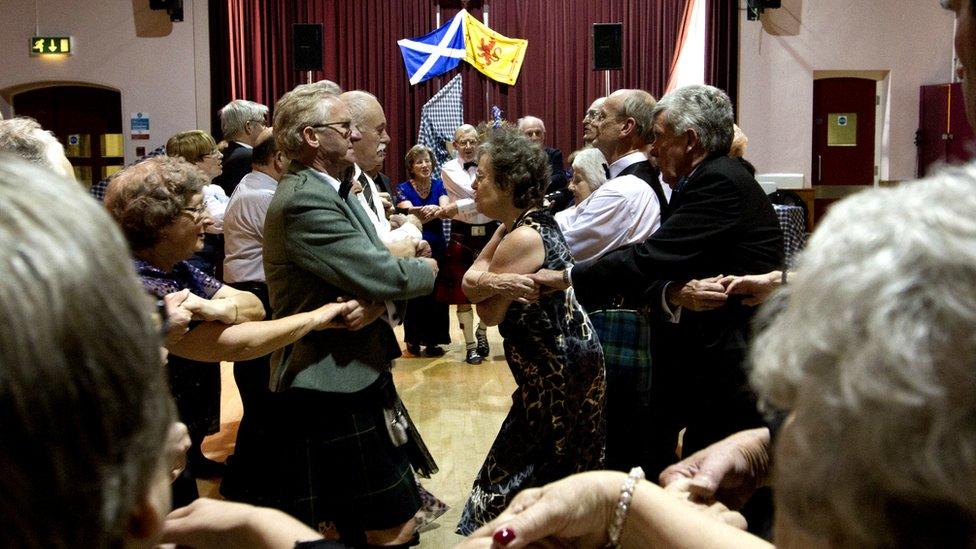
People dance at a traditional party for St Andrew's Day that was held in England
Scottish people may celebrate the day in different ways.
People have parties and play games, dance and eat lots of tasty food and drink.
There are also St Andrew's societies all over the world, which mark the occasion in their own countries.
Normally, celebrations might include a special type of party called a ceilidh - pronounced "kay-lee" - where people do Scottish country dancing.
But, traditional food can still be eaten, such as cullen skink - which is a type of fish soup - or lamb.
People also eat Scottish foods like haggis, porridge and black pudding.
Blue clothes and kilts (which are a wrap around knee length skirts) are worn too and people might also paint blue or Scottish flags on their faces.
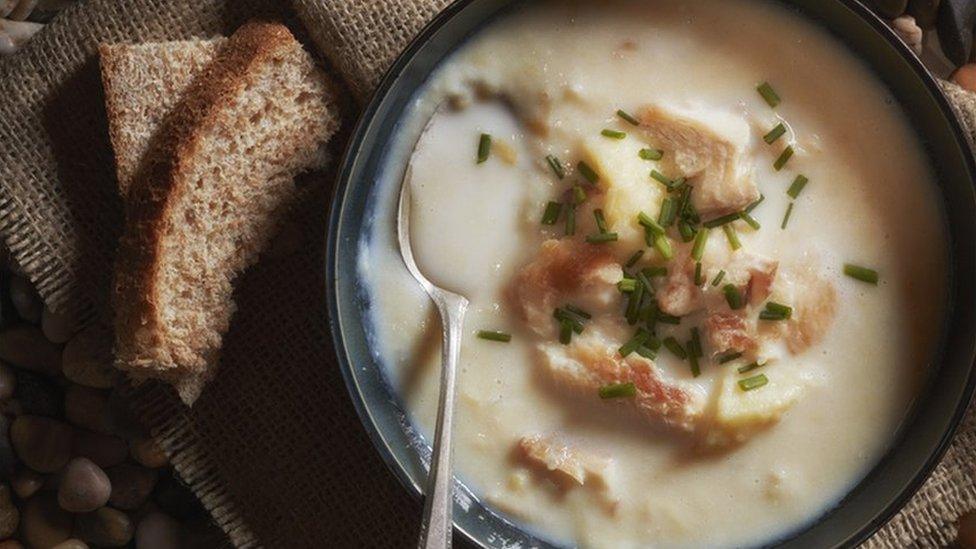
Cullen skink is a traditional Scottish fish soup made from smoked haddock
St Andrew's Day is also an official holiday in Scotland.
It is not a law that everyone has the day off school or work... some schools close and some schools choose to stay open.
Despite St Andrew's Day being the day of their patron saint, most Scottish people celebrate Burns Night (25 January) and Hogmanay (New Year) more.
